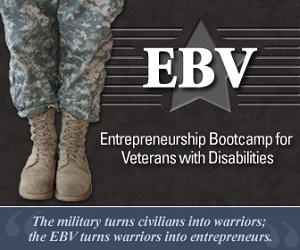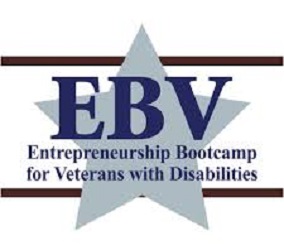VAMBOA: Why Veterans Become Business Owners
 By Debbie Gregory.
By Debbie Gregory.
According to the U.S. Bureau of Labor Statistics (BLS), the unemployment rate in America has dropped to 5.5%, the lowest that it has been since 2008. The unemployment rate among the Post-9/11 era generation of Veterans is at 6.5%, among the highest in the nation. Many government and private initiatives have started to hire more Veterans. But the answer to eliminating Veteran unemployment may not be solved by finding jobs for Vets, but rather by allowing them to create jobs themselves.
Veterans are 44% more likely than their non-veteran peers to start their own business, according to the BLS. Many have speculated that years spent following orders drives Veterans to want to call their own shots in their second careers. Others have guessed that after years of deployments and frequent PCS moves, Veterans want to create their own businesses in order to lay down roots for themselves and their families in a particular region. While there may be some substance to these hypotheses, the truth of the matter is that Veterans become entrepreneurs because it utilizes their knowledge and skills that were enhanced through their military experience.
Service members, especially those in leadership positions, wear many hats, much like business owners do. And much like successful military leadership, successful business ownership requires the ability to delegate, the discipline to stick to a strategy, and the fortitude to inspire yourself and others to continue in the face of death or failure.The willingness to work hard doesn’t hurt.
But in battle and in business, guts and glory aren’t always enough to accomplish your mission. Successful campaigns and successful business require proper training and knowledge of the tactics that will be used. That is why programs such as the Entrepreneurial Bootcamp for Veterans with Disabilities (EBV) are a necessary first step for Veterans wishing to start their own companies.
The EBV program is a partnership between several of the country’s top business schools and the U.S. Small Business Administration. The schools offer free courses in entrepreneurship and business management to selected Veterans and military spouses. The aim of the EBV program is to open the door to economic opportunity for Veterans and their families by developing their competencies in creating and sustaining an entrepreneurial venture.
No one should go into battle unprepared, and they shouldn’t enter into an entrepreneurial venture unprepared either. Make sure that you have the training that you need to start your business and then utilize VAMBOA to continue learning and growing as a Veteran business owner.
The Veteran and Military Business Owners Association (VAMBOA) is a non-profit business trade association that promotes and assists Veteran Business Owners, Service Disabled Veteran Owned Businesses (SDVOB) and Military Business Owners. Small businesses are the backbone of our economy and responsible for job generation. That is why VAMBOA provides its members with Business Coaching, Contracting Opportunities, a Blog that provides information, Networking contacts and other resources. Membership is FREE to Veterans. Join Now!











